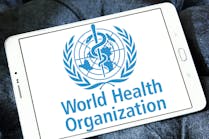Study Finds Doubled Rate of Chronic Hypertension in U.S. Pregnancy From 2007 to 2021
Rates of chronic hypertension during pregnancy in the U.S. doubled from 2007 to 2021, and only about 60% of those with the condition were treated with antihypertensive medications, according to a National Institutes of Health-supported study. NIH's website has the release.
Study lead Stephanie Leonard, Ph.D., emphasizes that these results are particularly concerning because of “the high rate of U.S. maternal mortality, which is linked to chronic hypertension in pregnancy.” Rates continue to increase despite the availability of “safe and effective treatments.”
Chronic hypertension in pregnancy is defined as “having persistent high blood pressure — 140/90 millimeters of mercury (mm Hg) or higher — before pregnancy or within 20 weeks of gestation. The condition can cause organ damage in the expectant mother and increase the risk of preterm birth or a low birthweight baby. It can be fatal if undetected and untreated.” Black, American Indian, and Alaska Native people experience the nation’s highest rates of poor maternal health outcomes and pregnancy-related deaths.
Researchers analyzed a large database of U.S. commercial insurance claims from 2007 to 2021, which included 1.9 million pregnant people aged 12 to 55 years old. The percentage of those pregnant with chronic hypertension rose from 1.8% in 2008 to 3.7% in 2021. Despite the rise, the percentage who used antihypertensive medication remained steady.
Possible reasons for this include “women having babies at an older age” more frequently and rising rates of obesity.

Matt MacKenzie | Associate Editor
Matt is Associate Editor for Healthcare Purchasing News.





